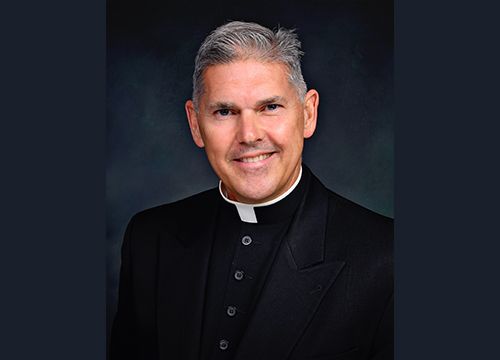Pentecost Sunday – Year B Acts 2:1-11; Ps 104:1, 24, 29-30, 31, 34; Cor 12:3b-7, 12-13 or Gal 5:16-25; Jn 20:19-23 or Jn 15:26-27, 16:12-15
This year at the Easter Vigil, our Easter fire was the largest blaze I have ever been near. As I was blessing the new fire and the Paschal candle, fire was raining down on me and the other members of the assembly.
Unfortunately, and unlike the apostles at Pentecost, this fire did not merely alight on us; it also started to light me up – a post-Easter repair of my cope was necessary. But the experience did start me thinking about the connection between this Easter fire, which is a symbol of the resurrected Christ, and the flames that fell upon the apostles at Pentecost.
The tongues of fire that came to rest on the heads of those in the upper room were part of a theophany of the Holy Spirit. Pentecost shows us that the Holy Spirit is not some impersonal force. The Holy Spirit is a person in God from whom have flowed all the subsequent gifts to the Church.
The Catechism of the Catholic Church speaks of Pentecost as the Passover fulfilled. The death and resurrection of Jesus Christ are only fulfilled in the giving of the Holy Spirit to the apostles and to us. Pentecost is the fulfillment of Easter.
Those tongues of fire also take us back to the theophany of the Father to Moses in the burning bush — it burned but was not consumed. God the Father revealed himself in those flames as I Am Who Am.
God would reveal himself to his people again as he led them in the desert with a pillar of fire, and again on Mount Sinai as he gave Moses the law as the Lord come down upon the mountain in fire. Jesus was revealed as God to his apostles on the Mount of the Transfiguration as his face and clothes became dazzling white.
Jesus is revealed as the Son, and the one alone to whom we should truly listen.
The theophany of the Transfiguration was given to help the apostles to understand what was really going to happen in Jesus’ suffering, death, and resurrection.
Pentecost is the first time the Trinity is revealed to us. Father and Son had now been revealed, but for the first time the Holy Spirit is revealed as God. This is so we might understand what kind of life is now open to us — a time of life which up to that time had not even been in our collective imaginations.
In the flames of Pentecost, the Holy Spirit is revealed as God and the one from whom we receive the graces necessarily to live our live in Jesus Christ as we also make our lives an offering to the Father.
Jesus appeared to the apostles on the evening of Easter and said, “Receive the Holy Spirit.” He completes the action of his self-gift on the cross. He makes it possible for those gathered in the Upper Room and us to share in the very life of God who is Father, Son and Holy Spirit.
We are no longer just creatures. We have been divinized by God. Now we cannot only worship God, but we are given the gift of sharing in his very life.
We might not have visible flames fall upon us this Pentecost, but the fulfillment of the meaning of that Paschal fire can live in our hearts. Are not our hearts burning within us?
If your heart is not yet burning, ask. The Holy Spirit wants to give us the gift of a burning heart on fire with love. Burning with the presence of Christ, burning with the gift of the Holy Spirit, burning with the desire to give ourselves to the Father in love.
Msgr. Timothy Keeney is pastor of Incarnation, Charlottesville.

